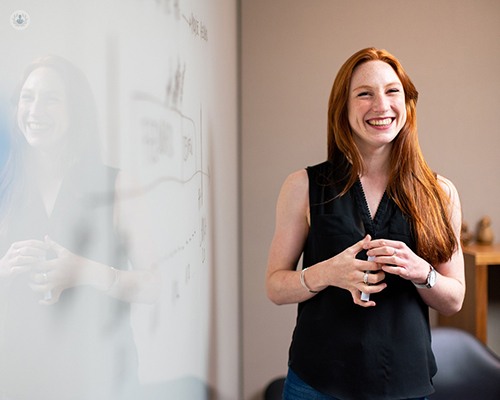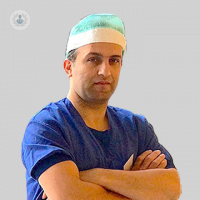Low-level laser therapy (LLLT): What are the benefits?
Written in association with:Low-level laser therapy (LLLT) is a non-invasive treatment that can help stimulate healing. In his latest online article, renowned consultant vascular surgeon Mr Abdullah Jibawi offers his expert insight into this treatment.

What is LLLT?
LLLT (low-level laser therapy) uses low-energy lasers applied to the skin or wounds to stimulate healing and reduce inflammation. It's particularly used for complex wounds and lymphoedema, which are conditions resistant to standard treatments.
What is LLLT used to treat:
It's used to treat complex wounds that don't respond to standard treatments and lymphoedema. This is a condition characterised by swelling in the arms or legs due to blockage of lymph channels.
How does LLT work?
LLLT is believed to target components within cells, 're-energising' them to work more effectively, thereby helping regulate scar tissue and promote fluid uptake. It can reduce limb volume, break down scar tissue and thickened tissues, and increase range of motion by reducing tightness.
Effectiveness for challenging wounds
LLLT, when used in conjunction with standard care, has been shown to increase the healing rate of ulcers and result in fewer amputations in people with diabetes, compared to standard care alone.
Effectiveness for lymphoedema
Studies have shown that LLLT can significantly reduce arm circumference/volume in lymphoedema patients, particularly in those with breast cancer-related lymphoedema. However, results vary, and the number of patients in studies is often limited.
Advantages over other treatments:
LLLT offers a non-invasive, less burdensome addition to conventional treatments. It can provide more time-efficient to manual lymphatic drainage and has shown potential in reducing limb volume and tissue hardness without serious side effects.
*Disclaimer: Photobiomodulation (PBM also known as low-level laser) isn't NICE-approved for lymphoedema as yet. The U.S. National Cancer Institute provides Level I Evidence for using low-level lasers in lymphoedema management. Australia's Wound Group assigns it a Grade B recommendation. For the most up-to-date information and guidance, always consult your doctor.
Mr Abdullah Jibawi is a highly experienced consultant vascular surgeon based in London, Chertsey and Woking. If you would like to book a consultation with Mr Jibawi, you can do so today via his Top Doctors profile


